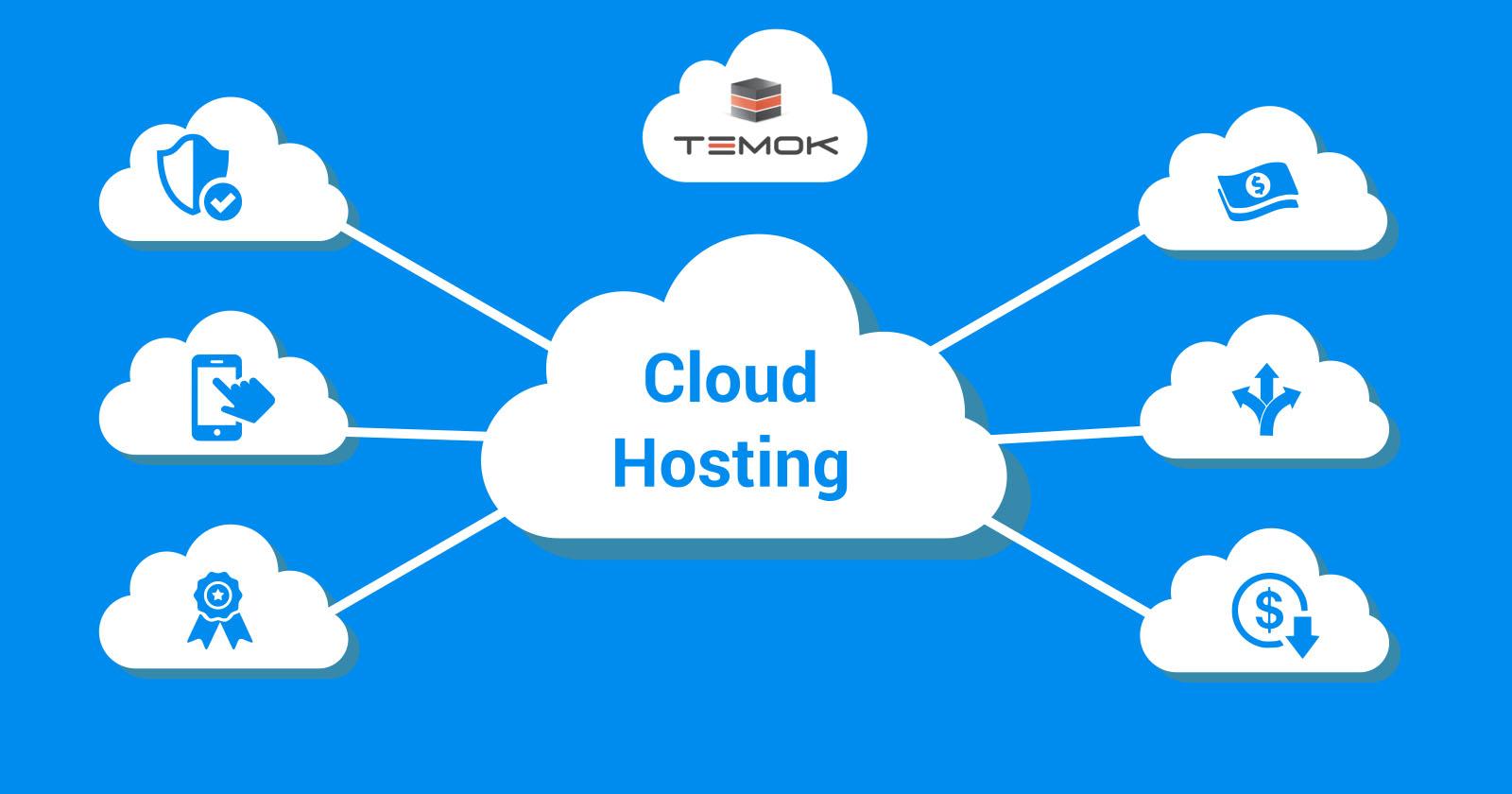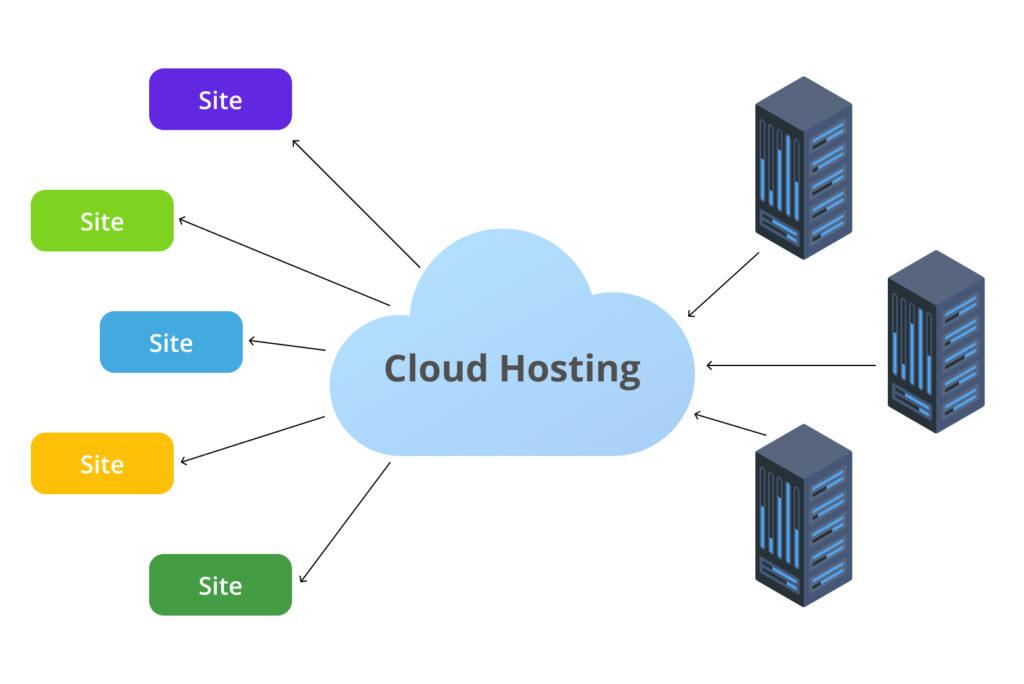Cloud hosting is revolutionizing the way we store and access data, offering flexibility and scalability like never before. But is it right for you? In this article, we’ll break down the pros and cons, helping you decide if it’s time to make the switch!
What Is Cloud Hosting? Pros and Cons and How to Get Started
In today’s digital age, where information flows like water and businesses are always on the hunt for the latest tech solutions, cloud hosting has emerged as a game-changer. But what exactly is cloud hosting, and why should you care? Imagine having your website or application accessible from anywhere in the world, with the ability to scale up at a moment’s notice—sounds fantastic, right? However, like any technology, it comes with its own set of pros and cons. Whether you’re a small business owner looking to expand your online presence, a tech-savvy entrepreneur, or just someone curious about the cloud, this article will break down everything you need to know about cloud hosting. We’ll explore its benefits, weigh the potential downsides, and guide you through the first steps to get started in the cloud. So, sit back, relax, and let’s dive into the world of cloud hosting!
Understanding Cloud Hosting and Its Growing Popularity
Cloud hosting has revolutionized the way businesses approach their online infrastructure. Unlike traditional web hosting, which typically relies on a single server, cloud hosting leverages a network of virtual servers. This means your data isn’t confined to one physical location, enhancing both flexibility and reliability. The ability to scale resources on demand is a game changer, allowing businesses to adapt swiftly to fluctuating traffic and workload demands.
One of the primary reasons for the surge in cloud hosting popularity is its cost-efficiency. By paying only for the resources you use, businesses can significantly reduce overhead costs. This model eliminates the need for hefty upfront investments in hardware, making it particularly attractive for startups and small enterprises looking to grow without breaking the bank. Additionally, cloud hosting often includes automatic updates and maintenance, further cutting down on operational expenses.
Security is another critical factor driving the adoption of cloud hosting. With sophisticated encryption and advanced security protocols, cloud hosting providers are often better equipped to protect your data compared to conventional hosting solutions. Most reputable cloud services offer regular backups, ensuring that your data remains safe and recoverable in case of unexpected events. The redundancy built into cloud systems means that even if one server goes down, your website remains operational.
However, like any technology, cloud hosting comes with its own set of challenges. Data privacy is a significant concern; entrusting your information to a third party raises questions about who has access to it and how it’s being secured. Additionally, there can be complications with vendor lock-in, making it difficult to switch providers without incurring substantial costs or technical challenges.
| Pros of Cloud Hosting | Cons of Cloud Hosting |
|---|---|
| Scalability: Easily adjust resources as needed. | Data Privacy: Concerns about sensitive information. |
| Cost-effective: Pay only for what you use. | Vendor Lock-in: Difficulties in switching providers. |
| Automatic updates: Reduced maintenance workload. | Downtime risk: Dependent on provider’s uptime. |
Getting started with cloud hosting is easier than ever. Begin by assessing your business needs and determining what resources are essential for your operations. Next, research various cloud hosting providers to find one that fits your requirements. Look for features like customer support, security measures, and scalability options. Once you’ve chosen a provider, setting up your account and migrating your data is typically straightforward, with many companies offering assistance to ensure a smooth transition.
cloud hosting offers a compelling mix of flexibility, security, and cost savings. While it’s crucial to weigh the pros and cons, the ability to scale quickly and reduce operational costs makes it an attractive option for businesses of all sizes. By taking the time to understand this technology, you position your business for sustained growth and success in an increasingly digital landscape.

Key Features of Cloud Hosting That Make It Stand Out
Cloud hosting has emerged as a transformative solution for businesses looking to enhance their online presence and operational efficiency. One of the primary features that make cloud hosting stand out is its scalability. Unlike traditional hosting solutions, cloud hosting allows you to easily adjust your resources based on demand. This means that during peak traffic periods, you can scale up, and during quieter times, you can scale down, ensuring that you only pay for what you use.
Another remarkable feature is reliability. With cloud hosting, your data is stored across multiple servers, minimizing the risk of downtime. If one server experiences an issue, your website or application remains accessible because the traffic can be rerouted to other operational servers. This architecture not only enhances uptime but also ensures a seamless user experience.
Cost-effectiveness is yet another advantage. Traditional hosting often requires businesses to invest in heavy infrastructure upfront, but cloud hosting operates on a pay-as-you-go model. This means you can manage your budget more effectively without compromising on the quality of service. The flexibility of payment plans allows businesses to allocate funds more strategically, making it an attractive option for startups and small enterprises.
Security is a major concern for any business, and cloud hosting addresses this with robust measures. Most cloud hosting services offer advanced security protocols that include data encryption, firewalls, and regular security updates. Additionally, they often provide data redundancy, ensuring that your information is backed up and safe even in the event of hardware failures.
Lastly, let’s not forget the performance aspect. Cloud hosting leverages a network of interconnected servers, which can significantly boost website loading speeds and improve overall performance. This means that your visitors will enjoy a faster, smoother experience, which is crucial for enhancing user satisfaction and retention rates.
| Feature | Benefits |
|---|---|
| Scalability | Easily adjust resources based on traffic demands. |
| Reliability | Minimal downtime with data spread across multiple servers. |
| Cost-effectiveness | Pay only for what you use, reducing overhead costs. |
| Security | Advanced protocols and data redundancy for enhanced protection. |
| Performance | Faster loading times and improved user experience. |

The Advantages of Cloud Hosting You Cant Overlook
When considering web hosting solutions, cloud hosting stands out for its myriad benefits that cater to both small businesses and large enterprises. One of the most significant advantages is scalability. With cloud hosting, you can easily adjust your resources based on demand. Whether you experience seasonal traffic spikes or rapid business growth, you can scale up or down without the hassle of physical hardware changes.
Another key benefit is reliability. Traditional hosting solutions often face downtime due to hardware failures or maintenance issues. In contrast, cloud hosting utilizes multiple servers, meaning that even if one server goes down, your data is still accessible from another. This redundancy ensures that your website remains online, providing a seamless experience for users.
Cost-effectiveness is also a compelling advantage. With cloud hosting, you typically pay only for the resources you use. This pay-as-you-go model allows businesses to manage their IT budgets more effectively, reducing unnecessary spending on unused resources. This flexibility is particularly beneficial for startups and small to medium-sized enterprises.
Security remains a top concern for online businesses, and cloud hosting addresses this with advanced measures. Most cloud hosting providers offer robust security features, including data encryption, firewalls, and regular backups. These features help protect your data from unauthorized access and cyber threats, giving you peace of mind.
Additionally, cloud hosting enhances performance. With resources distributed across multiple servers, your website can load faster, improving user experience and SEO rankings. The use of Content Delivery Networks (CDN) further optimizes speed by caching content closer to your users, regardless of their location.
| Advantage | Description |
|---|---|
| Scalability | Easily adjust resources to meet demand. |
| Reliability | Redundant servers ensure minimal downtime. |
| Cost-effectiveness | Pay only for the resources you use. |
| Security | Advanced measures protect against threats. |
| Performance | Faster load times enhance user experience. |
the advantages of cloud hosting can significantly enhance your business operations and online presence. From scalability and reliability to cost savings and enhanced security, cloud hosting offers a comprehensive solution tailored to the needs of modern businesses.

Potential Drawbacks of Cloud Hosting You Should Consider
While cloud hosting offers numerous benefits, it’s essential to weigh the potential drawbacks before making the switch. Understanding these challenges can help you make a more informed decision regarding your hosting needs.
One significant concern is security. Although cloud providers implement robust security measures, storing data off-site can increase the risk of breaches. Sensitive data could be exposed to unauthorized access if the provider’s infrastructure is compromised or if there are lapses in security protocols. It’s crucial to assess the security features and compliance standards of any cloud hosting service you consider.
Cost can also become a downside. While cloud hosting is often marketed as a cost-effective solution, expenses can accumulate rapidly, especially for businesses with fluctuating resource needs. Pay-as-you-go models may seem appealing, but unexpected spikes in usage can lead to hefty bills. It’s wise to project your resource consumption accurately and choose a plan that aligns with your budget.
Another factor to keep in mind is the dependency on internet connectivity. Cloud hosting relies entirely on internet access, meaning if your connection is unstable or goes down, so does your ability to access your applications and data. This can lead to downtime, which can be detrimental to your business operations. Consider your internet reliability and have contingency plans in place for outages.
Vendor lock-in is a common issue with cloud hosting services. If you invest heavily in a specific platform, migrating to another service can be complicated and costly due to differences in technology and data formats. This dependency can limit your flexibility and make it harder to switch providers if the need arises. Always evaluate the portability of your data before committing to a cloud hosting solution.
| Drawback | Considerations |
|---|---|
| Security Risks | Data breaches, unauthorized access |
| Cost Variability | Unexpected charges, budgeting challenges |
| Internet Dependency | Downtime due to connectivity issues |
| Vendor Lock-In | Migration challenges, reduced flexibility |
Lastly, while performance is generally good with cloud hosting, it can vary based on your provider and the specific services you choose. Network latency, for instance, can impact application speed, especially if your server is geographically distant from your user base. Always monitor performance metrics and be ready to optimize or switch services if necessary.

Comparing Cloud Hosting to Traditional Hosting Solutions
When deciding between cloud hosting and traditional hosting solutions, it’s essential to understand the fundamental differences that can impact your website’s performance, scalability, and cost. Both options have their strengths and weaknesses, and the right choice depends largely on your specific needs.
Traditional hosting, often referred to as shared or dedicated hosting, involves storing your website on physical servers located in a data center. Here are some characteristics:
- Fixed Resources: You get a set amount of bandwidth and storage, which may limit your website’s growth.
- Cost-Effectiveness: Generally cheaper upfront, especially for small websites or blogs.
- Control: More control over the server environment, which is crucial for advanced users.
On the other hand, cloud hosting operates on a network of virtual servers that pull resources from a centralized pool. This setup offers distinct advantages:
- Scalability: Instantly scale your resources up or down based on traffic and demand.
- Reliability: With resources spread across multiple servers, you’re less likely to experience downtime.
- Pay-as-You-Go: Only pay for the resources you use, making it a cost-effective solution for many businesses.
To give a clearer picture, here’s a quick comparison:
| Feature | Traditional Hosting | Cloud Hosting |
|---|---|---|
| Scalability | Limited | Highly Scalable |
| Cost Structure | Fixed Monthly Fee | Pay-as-You-Go |
| Downtime | More Likely | Less Likely |
| Setup Complexity | Moderate to High | Low to Moderate |
Ultimately, the choice between cloud and traditional hosting boils down to your website’s requirements. If you anticipate rapid growth or fluctuating traffic patterns, cloud hosting may be the way to go. Alternatively, for simpler projects or those with predictable traffic, traditional hosting remains a solid option. Understanding these key differences can help you make an informed decision that aligns with your goals.
How to Choose the Right Cloud Hosting Provider for Your Needs
Choosing the right cloud hosting provider can feel like navigating a maze with countless options and features. To make an informed decision, consider a few essential factors that align with both your technical needs and business goals.
Performance and Reliability: Your cloud hosting provider should ensure fast loading times and minimal downtime. Look for providers that offer:
- Uptime Guarantees: Aim for at least 99.9% uptime.
- Scalability: Ensure they can accommodate your growth without hiccups.
- Content Delivery Network (CDN): A CDN can enhance speed and performance.
Security Features: Security is paramount in the digital age. Seek out providers that prioritize your data’s safety with features such as:
- Data Encryption: Protect your information from unauthorized access.
- Regular Backups: Ensure your data is safe and easily recoverable.
- Firewalls: A robust firewall can prevent malicious attacks.
Support and Customer Service: Access to reliable support can make or break your experience. Opt for providers that offer:
- 24/7 Customer Support: Issues can arise at any time, and you need help when it’s needed.
- Multiple Support Channels: Phone, chat, and email options give you flexibility.
- Knowledge Base: A comprehensive library of articles can assist you in troubleshooting.
Pricing Structure: Understand the pricing model to avoid unexpected costs. Look for:
- Transparent Pricing: Be wary of hidden fees.
- Pay-as-You-Go Options: Flexibility in payments can save money.
- Free Trials: Test the service before making a commitment.
consider the reputation and reviews of the provider. Research feedback from existing users to gauge their experiences. This will help you avoid potential pitfalls and find a provider that truly meets your needs.
Getting Started with Cloud Hosting: A Step-by-Step Guide
Cloud hosting is revolutionizing how businesses and individuals manage their online presence. If you’re considering this flexible hosting solution, here’s a straightforward approach to help you kickstart your journey.
Understanding the Basics
Before diving into the setup, it’s essential to grasp what cloud hosting is all about. At its core, cloud hosting utilizes a network of remote servers to store and manage your data, making it accessible from anywhere with an internet connection. Here’s why it stands out:
- Scalability: Easily upgrade or downgrade your resources based on demand.
- Reliability: Minimal downtime due to multiple server backups.
- Cost-Effectiveness: Pay for what you use, avoiding hefty upfront costs.
Choosing the Right Cloud Hosting Provider
Your choice of provider can significantly impact your cloud experience. When evaluating options, consider the following criteria:
- Performance: Check their server speed and uptime guarantees.
- Support: Look for 24/7 customer service with multiple contact methods.
- Security: Ensure they offer robust security measures, including SSL certificates and DDoS protection.
Setting Up Your Cloud Hosting Account
Once you’ve selected a provider, the setup process typically involves these steps:
- Create an account on the provider’s website.
- Choose a hosting plan that suits your needs.
- Configure your server settings according to your preferences.
- Register a domain name if you don’t already have one.
- Finalize your payment and review your configuration.
Deploying Your Website
After setting up your account, it’s time to deploy your website. Many providers offer one-click installations for popular platforms like WordPress, making it easier than ever to get started:
| Platform | Installation Ease |
|---|---|
| WordPress | One-click install available |
| Joomla | Moderate complexity |
| Magento | Requires setup configuration |
Monitoring and Optimization
Once your site is live, keep an eye on its performance. Utilize analytics tools to monitor traffic and user engagement. Regularly optimize your site for speed and usability by:
- Compressing images: Reduces load times.
- Caching: Enhances performance by storing static versions of your pages.
- Updating software: Ensures security and functionality.
With these steps, you’re well on your way to making the most of cloud hosting. Enjoy the flexibility and scalability it offers, and remember to stay proactive about your site’s performance and security.
Best Practices for Optimizing Your Cloud Hosting Experience
To truly make the most of your cloud hosting experience, embracing a set of best practices can lead to enhanced performance, security, and cost-effectiveness. Here are some valuable strategies you should consider:
- Choose the Right Provider: Not all cloud hosting providers are created equal. Research and select a provider that aligns with your specific needs, whether that’s scalability, customer support, or pricing options.
- Understand Your Resource Needs: Assess your application requirements to avoid over-provisioning or under-provisioning resources. Utilize monitoring tools to get insights into your usage patterns.
- Utilize Auto-Scaling: Set up auto-scaling features to automatically adjust resources based on current demand. This ensures optimal performance without unnecessary costs.
- Implement Robust Security Measures: Always prioritize security by using firewalls, encryption, and regular backups. Make sure your cloud environment is compliant with relevant regulations.
- Optimize Performance: Use Content Delivery Networks (CDNs) to reduce latency and improve load times for users across different locations. Fine-tune your applications for better efficiency.
- Regularly Review Costs: Keep an eye on your cloud expenses. Many providers offer cost analysis tools that help identify unused resources or areas where you can cut back.
Consider the following table for a quick reference on vital aspects to monitor:
| Aspect | Importance | Monitoring Tool |
|---|---|---|
| Resource Usage | Ensures efficient allocation | Cloud Provider Dashboard |
| Cost Management | Avoids unexpected expenses | Cost Analysis Tools |
| Security Alerts | Protects data integrity | Security Monitoring Solutions |
| Performance Metrics | Enhances user experience | Performance Monitoring Software |
Another essential practice is to maintain a consistent backup strategy. Regular backups can save you from catastrophic data loss, and many cloud providers offer automated solutions to streamline this process. Additionally, consider adopting a multi-cloud approach for redundancy; this means using more than one cloud provider to mitigate risks associated with relying on a single vendor.
don’t overlook the importance of staying informed about the latest technologies and trends in cloud hosting. Engage with online communities, read blogs, and participate in webinars to continuously enhance your knowledge. By applying these best practices, you’ll ensure that your cloud hosting experience is not only optimized but also aligned with your long-term business goals.
Future Trends in Cloud Hosting You Should Be Aware Of
As businesses increasingly rely on digital solutions, the evolution of cloud hosting continues to shape the landscape of IT infrastructure. It’s essential to stay ahead of the curve and understand the trends that are set to dominate the cloud hosting arena in the coming years.
1. Multi-Cloud Strategies: Enterprises are moving towards multi-cloud environments, leveraging the strengths of various cloud providers. This trend not only enhances flexibility but also mitigates risks associated with vendor lock-in. Organizations can choose different providers for specific workloads, optimizing performance and cost.
2. Edge Computing: With the explosion of IoT devices and the need for real-time data processing, edge computing is becoming increasingly relevant. This approach allows data to be processed closer to the source, reducing latency and improving performance. As more businesses adopt this model, cloud hosting services will need to adapt to support edge computing capabilities.
3. Serverless Computing: The rise of serverless architectures is transforming how applications are built and deployed. Developers can focus on writing code without managing servers, which streamlines workflows and reduces overhead costs. Expect serverless computing to become a staple in cloud hosting services, driving efficiency and innovation.
4. Enhanced Security Measures: As cyber threats continue to evolve, cloud hosting providers are prioritizing robust security protocols. This includes AI-driven threat detection, advanced encryption methods, and compliance with stringent regulatory requirements. Businesses will increasingly seek providers that demonstrate a commitment to security, making it a critical factor in cloud hosting decisions.
5. Artificial Intelligence and Machine Learning Integration: The incorporation of AI and ML technologies into cloud hosting solutions is set to become commonplace. These technologies can optimize resource allocation, improve performance, and enhance customer service through smarter, data-driven insights. Companies leveraging AI in their cloud strategies will gain a competitive edge.
As the cloud hosting landscape continues to evolve, staying informed about these trends will enable businesses to make strategic decisions that align with their long-term goals. By embracing the future of cloud hosting, organizations can ensure they remain agile, secure, and competitive.
Frequently Asked Questions (FAQ)
Q&A: What Is Cloud Hosting? Pros and Cons and How to Get Started
Q: What exactly is cloud hosting?
A: Cloud hosting is a type of web hosting that utilizes a network of virtual servers hosted in the cloud, rather than relying on a single physical server. This means your website isn’t restricted to the capabilities of one machine; instead, it can tap into the resources of multiple servers. It’s a bit like having a backup team ready to jump in whenever you need extra support!
Q: What are some of the key benefits of cloud hosting?
A: There are several benefits! First, it’s incredibly scalable. If your website experiences a spike in traffic, cloud hosting can easily allocate more resources to handle the increased demand. Second, it offers great reliability—if one server goes down, others can take over, minimizing downtime. Plus, you often pay for what you use, which can lead to cost savings. Who doesn’t love saving money while getting better performance?
Q: Are there any downsides to cloud hosting?
A: Yes, while cloud hosting has many advantages, it’s not without its challenges. For example, the cost can be unpredictable if your usage spikes unexpectedly. Additionally, because your data is stored offsite, you need to trust your provider’s security measures. And let’s not forget about the learning curve—if you’re used to traditional hosting, adjusting to a cloud environment might feel a bit overwhelming at first.
Q: How do I choose the right cloud hosting provider?
A: Great question! Start by considering your specific needs. Look for a provider that offers a flexible pricing model, excellent customer support, and robust security features. It’s also beneficial to read reviews and maybe even test out their services with a trial period. You want a provider who aligns with your growth plans and can scale with you as your needs change.
Q: What’s the first step I should take to get started with cloud hosting?
A: The first step is to assess your current hosting needs and future goals. Take some time to evaluate your website’s traffic, performance requirements, and budget. Once you have a clear understanding of what you need, you can start researching potential providers. Many offer easy onboarding processes, so you can be up and running in no time!
Q: Is cloud hosting suitable for everyone?
A: While cloud hosting is incredibly versatile and can benefit a wide range of users, it might not be the best fit for everyone. If you have a small, static website with minimal traffic, traditional shared hosting might suffice. However, if you anticipate growth or need more flexibility and resources, cloud hosting is definitely worth considering. It’s all about finding the right match for your specific requirements.
Q: How can I ensure my data is secure in the cloud?
A: Security is a crucial factor when it comes to cloud hosting. Choose a provider that offers strong security measures, such as data encryption, firewall protection, and regular backups. Additionally, make sure to implement your own security practices, like using strong passwords and enabling two-factor authentication. The more layers of protection you have, the safer your data will be!
Q: What’s one final tip for someone considering cloud hosting?
A: Don’t be afraid to ask questions! Whether it’s about pricing, features, or support, a good cloud hosting provider will be happy to guide you through the process. Remember, investing in cloud hosting is investing in your website’s future—so take the time to get it right. If you approach it with the right mindset and preparation, you’ll set yourself up for online success!
With cloud hosting, the future of your website is bright and full of possibilities. So why wait? Dive in and explore what cloud hosting can do for you!
In Retrospect
As we wrap up our exploration of cloud hosting, it’s clear that this powerful approach to managing your online presence offers a wealth of benefits. From flexibility and scalability to enhanced security, cloud hosting can be a game-changer for businesses and individuals alike. However, it’s also vital to weigh the potential downsides, such as costs and complex management.
If you’re considering making the switch or just dipping your toes into the cloud, remember that the right provider and plan can make all the difference. Take the time to assess your specific needs and do your research—this will empower you to make informed decisions that align with your goals.
So, are you ready to embrace the cloud? With the right insights and tools at your disposal, stepping into cloud hosting could be one of the best moves you make for your digital journey. Whether you’re launching a new project or optimizing an existing one, the cloud is ready to take you to new heights. Don’t hesitate—get started today and unlock the full potential of your online endeavors!






